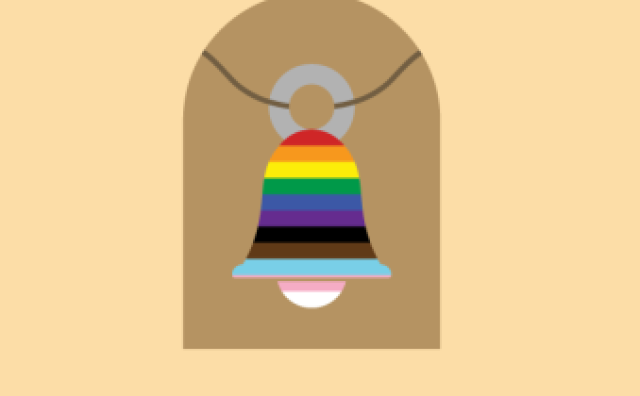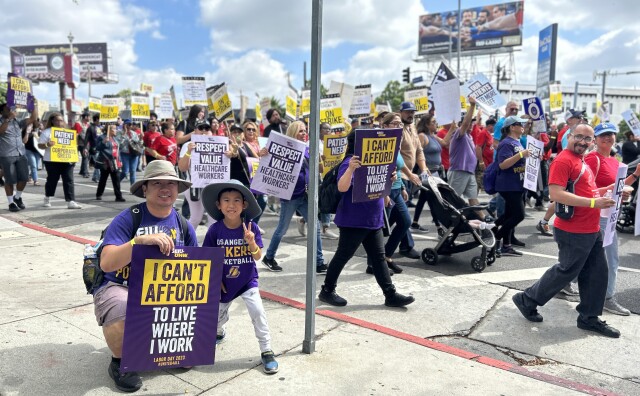Rev. Cecil Murray, Beloved Civic And Church Leader Pivotal To 1992 Unrest Healing, Dies At 94

Reverend Doctor Cecil "Chip" Murray, a beloved local pastor and theologian whose leadership and critiques of institutional racism and injustice made him a fixture of the Los Angeles faith community, has died at the age of 94.
“Today we lost a giant. Reverend Dr. Cecil Murray dedicated his life to service, community, and putting God first in all things," Mayor Karen Bass said in a statement issued on Saturday. "My heart is with the First AME congregation and community today as we reflect on a legacy that changed this city forever."
A lasting legacy
Murray's sermons at First African Methodist Episcopal Church touched on local and national social issues, from the L.A. unrest to the September 11 attacks — all with a moral clarity and trademark wit behind the pulpit that made him popular among churchgoers and civic leaders alike.
In particular, Murray was a key figure in leading the city during the unrest in 1992, following the beating of Rodney King and the killing of Latasha Harlins. Anticipating the acquittal of the officers on trial for King's beating, Murray worked with business, religious, and civic leaders before the verdict to attempt to bring peace to the city.
-
Listen: Invasive oak beetle, L.A. budget, more
-
Highs in the 70s to low 80s
-
A guide to being car-free in Los Angeles
Murray's sermon on May 3, 1992, the first Sunday following the beginning of the L.A. unrest, aimed to quell the still-ongoing civil disturbance. He spoke not just to the verdict that precipitated the protests and violence, but also the underlying institutional racism and injustice in Los Angeles and across the nation. Murray also worked behind the scenes to mediate between protesters and police.
Following the unrest, Murray worked to bring opportunities to South L.A. neighborhoods. FAME brought nearly $400 million in economic investments to L.A.'s communities of color and low-income neighborhoods.
Under Murray's 27 years of stewardship, FAME grew from a congregation of 250 into a megachurch of about 18,000 members, in no small part due to Murray's commitment to civic engagement and outreach beyond the walls of the church.

Following his 2004 retirement from FAME, Murray became a senior fellow at the University of Southern California's Center for Religion and Civic Culture.
Murray passed away on Friday. His family told KCAL News that he died after health struggles.
To see an archive of Murray's sermons throughout the years, visit USC's Rev. Cecil Murray Archive online.
-
The project will rename most of the terminals and all of the gates with the goal of world-class signage that leans into psychology.
-
After San Gabriel's city council rejected the proposal as "too narrow", one city councilmember argued the entire DEI commission, created in the aftermath of George Floyd's murder, had "run its course."
-
A medical industry challenge to a $25 minimum wage ordinance in one Southern California city suggests health workers statewide could face layoffs and reductions in hours and benefits under a state law set to begin phasing in in June. Some experts are skeptical, however, that it will have such effects.
-
Sandhill cranes are returning to the Lake Tahoe basin after a century long hiatus in what many say is a conservation success story.
-
The Dodgers fired Mizuhara in March after Ohtani's lawyers accused him of stealing millions of dollars from the baseball player to place bets with an Orange County-based bookie.
-
Jackie’s partner, Shadow, refuses to abandon their unviable eggs, despite her attempts to nudge him along.






